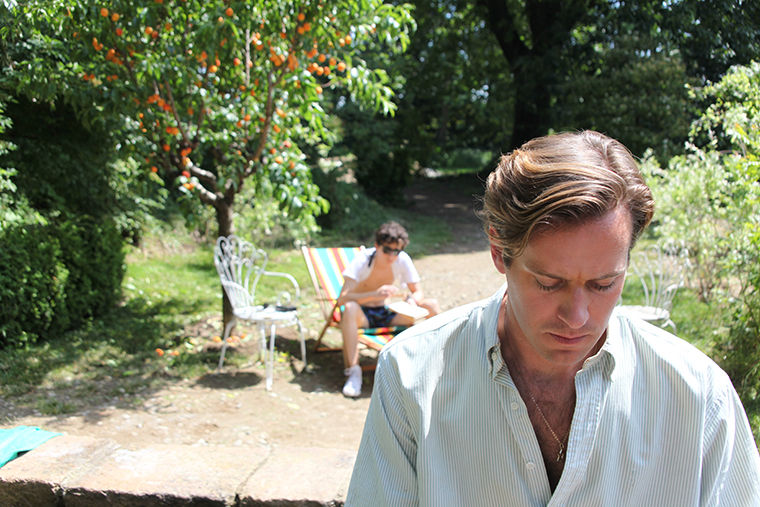‘Call Me by Your Name’ is an ode to first love, new beginnings
Courtesy Sony Pictures Classics
Timothée Chalamet (back) and Armie Hammer star as Elio and Oliver in “Call Me by Your Name.”
October 30, 2017
From the moment “Call Me by Your Name” begins, everything on screen is significant: the sheen of sweat, the glare of the sun, the sway of the apricot trees. Even the Northern Italian setting becomes its own character with old paved roads and stunning, bold architecture.
Adapted from André Aciman’s 2007 novel of the same name, the heart-wrenching film, set in 1983, follows the developing relationship between Elio—an intelligent 17-year-old played by Timothée Chalamet—and Oliver—an all-American graduate student played by Armie Hammer, chosen by Elio’s professor father to come stay at the family’s villa.
The film is directed by Luca Guadagnino with screenplay by James Ivory, best known for directing the 1987 film “Maurice,” and will be released Nov. 24. Since its premiere at the 2017 Sundance Film Festival in January, “Call Me by Your Name” has been praised by critics everywhere for its languid storytelling through touch and not just words. The film currently has a 97 percent on Rotten Tomatoes.
Chalamet and Hammer have undeniable chemistry while lying together on a countryside that’s only accentuated by the summer’s baked heat. Each scene is a potent concoction of bare skin, rippling muscles and damp hairlines, giving the film an overall sensual tone that triumphs over most modern romance movies.
But the sensuality never usurps that the film is, at its core, a coming-of-age story. Elio spends his summers pre-Oliver picking apricots off the trees, writing music, riding bikes with friends and, as he says it, “waiting for it to end.”
He moves throughout life as every other 17-year-old: desperate to be an adult and infuriated when anyone assumes that he isn’t one already. Chalamet’s natural charm and Elio’s buoyant playfulness incite as much laughter as they do wistful sighs. When he starts sleeping with his friend Marzia, portrayed by Esther Garrell, his conflicted emotions remind us what it is like to want too much all at once.
Though Guadagnino’s decision to cast straight actors for these roles has been criticized, the moment Hammer leans over Chalamet lying down on the long grass to kiss him for the first time, it’s clear that this movie was cast correctly. Elio and Oliver’s desperate longing and sometimes brutal flirting is uplifting, joyful and, at times, overwhelming.
If there is one scene that will cement the film’s place as one of the greatest of the last decade, it is Elio’s father’s closing monologue. After Oliver goes back to America, Elio sits beside his father in his study and receives the kind and accepting words every child deserves to hear.
Whether he and Oliver were friends or maybe more, they had something special. Elio must nurse that pain and joy because it will change him for the better.
Elio grows throughout the film, and Chalamet uses his body to portray that confidence in small, definitive ways. Whether he is learning how to stand taller, hug tighter or embrace the lessons learned, the film is one long ode to first love and how it transforms us.








